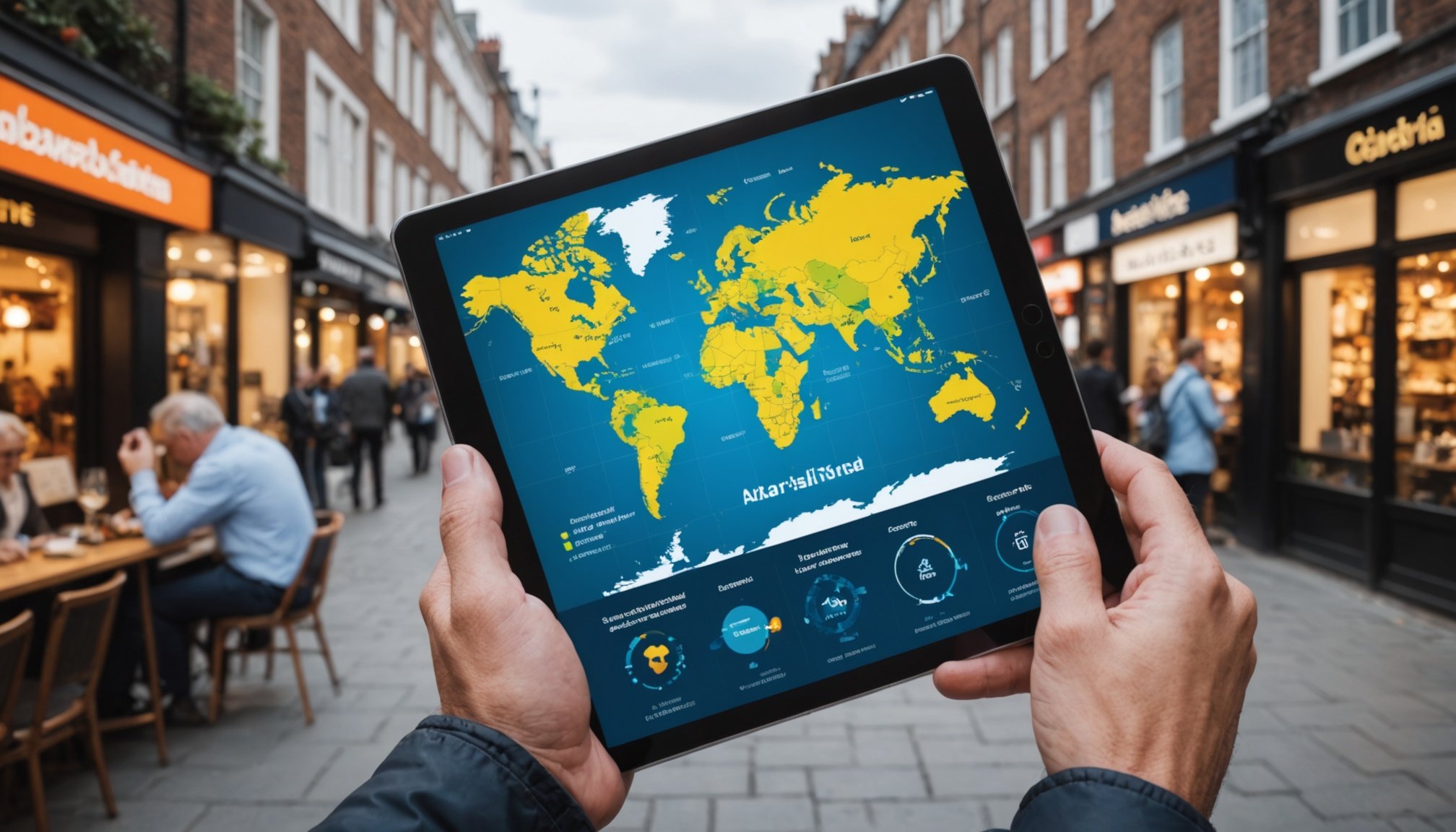Understanding AI Insights in Travel
In recent years, AI applications in travel have become increasingly pervasive, transforming how we plan and experience our journeys. The integration of AI in the travel industry has brought forth a myriad of data-driven decision-making processes that enable businesses to glean valuable insights from vast amounts of information.
AI technologies, such as machine learning algorithms and natural language processing, are instrumental in deciphering complex data sets. This has allowed travel companies to provide tailored recommendations and anticipate customer needs more accurately with travel industry analytics. For instance, AI-driven chatbots offer real-time assistance, enhancing customer interactions and ensuring a seamless travel experience.
Topic to read : Harnessing ai for enhanced predictive customer service: essential strategies for uk startups
An essential aspect of AI in travel is the utilisation of data to form predictive insights. By analysing past travel patterns and trends, AI can forecast future demands and optimise pricing strategies. This helps businesses in efficiently managing resources and improving their overall service delivery.
Moreover, AI-driven analytics are revolutionising the way travel companies engage with their customers. Personalised offerings based on individual preferences are now more accessible, allowing travellers to enjoy unique and memorable experiences. With these AI-powered tools, the travel industry continues to innovate, creating smarter and more efficient paths for travellers worldwide.
Topic to read : Maximizing growth: a guide for uk small businesses to harness government grants and subsidies for sustainable success
Emerging Consumer Travel Trends in the UK
The UK travel market is witnessing a shift in emerging travel trends as consumer behaviour evolves. With a growing focus on sustainability, eco-conscious travel preferences are taking center stage. Travellers increasingly seek experiential travel, prioritising unique adventures and personalised services over traditional holiday setups. This reflects a broader consumer behaviour analysis that highlights a demand for more meaningful and memorable travel experiences.
Current Trends Shaping UK Travel
In addition to eco-consciousness and experiential preferences, the impact of mobile applications and online platforms on consumer choices cannot be overstated. Technology shapes expectations, providing travellers with seamless, personalized booking experiences. These advancements allow consumers to make informed decisions, elevating the need for tailored offerings in the market.
Impact of Technology on Consumer Choices
Mobile apps and online platforms have fundamentally altered how consumer behavior is approached, shifting expectations. Technology facilitates immediate access to travel information, encouraging consumers to explore new, technologically enhanced ways of planning their trips.
Predictions for Future Travel Trends
Post-pandemic, further shifts in travel preferences are anticipated. The increased role of social media and influencer marketing is expected to profoundly influence emerging travel trends, steering consumer interest towards novel and engaging travel experiences.
Case Studies on AI Implementation by UK Travel Agencies
In recent years, AI success stories have emerged as pivotal in reshaping the travel industry in the UK. Travel agency innovations have flourished, with strategic case studies illustrating how technology adopts revolutionary roles.
Successful AI Integration Examples
Several major UK travel agencies have leveraged AI for invaluable customer insights. These agencies harness AI to analyse data patterns, enabling them to predict customer preferences accurately and tailor their recommendations accordingly. As a result, customer satisfaction metrics improve significantly.
One remarkable example involved a niche agency which used AI to enhance personalized offerings. By examining customer behaviour and preferences, the agency was able to curate travel packages uniquely suited to individual tastes. This not only increased customer engagement but also fostered loyalty and repeat business.
Lessons Learned from Failures
AI implantation does not come without its challenges. Some agencies experienced setbacks due to poor alignment of AI projects with business objectives. Often, the failure stemmed from inadequate data quality or insufficient focus on usability.
Key takeaways suggest that future AI initiatives must prioritize clear objectives and seamless integration into existing workflows, ensuring that AI serves as a tool for enhancement rather than replacing human expertise. This balance is crucial for harnessing AI’s potential fully and sustainably.
Practical Steps for Implementing AI Insights
Implementing AI successfully in any organization, particularly a travel agency, requires a comprehensive strategy. This strategy begins with AI strategy development and actionable steps, aligning with best practices in the industry.
Analyzing Existing Data and Systems
The first task involves a thorough analysis of the existing data and systems. By conducting an inventory of current data types and sources, agencies can determine what is available and what is required. Evaluating the technology stack ensures that it is AI-ready, adapting current systems to support AI strategy development effectively. This step is critical to identify gaps and opportunities for improvement.
Setting AI-Driven Goals
Establish clear, actionable objectives for AI initiatives that dovetail with both business goals and consumer insights. This involves defining specific outcomes and benchmarks that align with the organization’s overall strategic aims. By doing this, agencies can ensure that their AI endeavors are not only technically feasible but also commercially viable.
Training and Development for Staff
A cornerstone of successful AI implementation is the training of staff in AI applications. Providing ongoing education programs and workshops ensures that team members are up-to-date with the latest advancements and comfortable utilizing these technologies. This not only boosts productivity but also facilitates a smoother transition into an AI-enhanced operational environment.
Addressing Challenges in AI Integration
Integrating AI into travel agencies presents unique challenges that require strategically overcoming barriers. It’s essential for agencies to address these effectively to maximise the benefits of AI.
Identifying Common Obstructions
Travel agencies often face several obstacles in AI implementation, including budget and resource constraints. The cost of integrating AI can be significant, and many agencies may not have the resources to manage these expenses comfortably. Understanding these challenges is the first step in developing effective solutions.
Strategies to Mitigate Risks
To address AI implementation challenges, travel agencies need a robust risk management plan. This involves identifying potential risks early and developing strategies to minimise them. Encouraging a culture of adaptability and resilience among team members helps in smoothly integrating AI technologies, ensuring that the solutions are sustainable over time.
Engaging Stakeholders and Building Support
Securing stakeholder buy-in is crucial for the success of AI initiatives. Engaging stakeholders through effective communication ensures that they understand the benefits of AI, making them more likely to support the project. Clear communication helps build trust and encourages team members and clients to embrace new travel agency solutions.











